Generally speaking, historical dramas with a solemn and solemn style are called historical dramas with ancient history as the background, expressing major historical events, portraying major historical figures, recording major historical processes, exploring historical laws, and summarizing historical lessons. Historical dramas have been a rare breed on the market over the years.
It first has the difficulty of expressing scale. Historical dramas have stricter broadcast requirements and high uncertainty, and may experience more twists and turns from completion to broadcast. For example, the new "Mountains, Rivers and Moonlight" was finally released this time. It was completed in 2018. It took 4 years to be broadcast, and the number of episodes was also greatly compressed, from the 72 episodes planned at the beginning to the present. 45 episodes.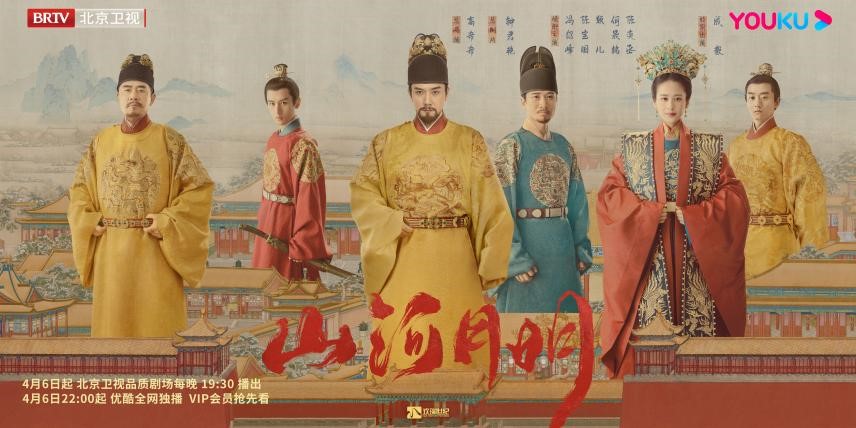
Why is the historical drama so popular? On the one hand, serious and solemn historical dramas often have many characters and complex stories, and have a high threshold for acceptance. On the other hand, other types of costume dramas continue to erode the share of historical dramas, such as the wave of palace fights started by "The Legend of Zhen Huan" in 2011, the wave of time-travel started by "Gong Suo Xin Yu" and "Journey to the Heart", costume dramas The general direction of creation shows the characteristics of entertainment.
In the context of "difficulties at both ends", historical dramas are "thankful", but this type of drama has irreplaceable significance and value. Therefore, there are still production companies willing to produce historical dramas, which are worthy of recognition. Broadcasting means victory in the first place.
Gao Xixi is the chief director, and Feng Shaofeng, Chen Baoguo, Zhang Fengyi and others starred in "Mountains, Rivers and Moonlight", focusing on how Zhu Di grew into a generation of emperors. Like "Yongzheng Dynasty", although it is about Yongzheng, it first spends a lot of space on Kangxi. "Mountains, Rivers and Moonlight" starts from the early years of Hongwu, and also spends a lot of space on Zhu Yuanzhang.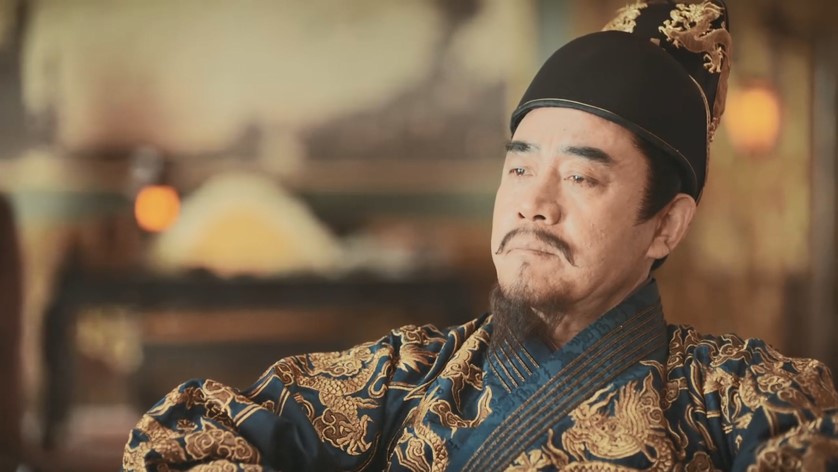
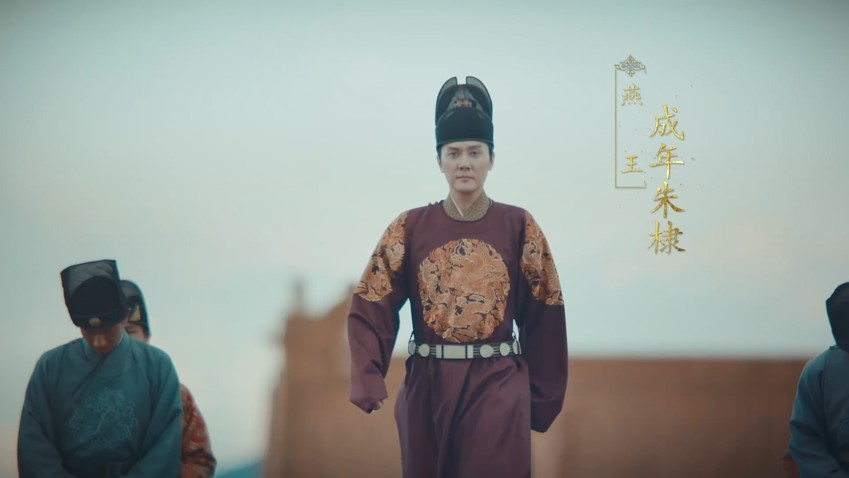
The strategy adopted in "Mountains, Rivers and Moonlight" is rather tacky. It is mixed with a large number of ancient puppets in the historical drama, adding a Mongolian "white moonlight" to the young Zhu Di (played by Cheng Yi) - King Kuokuo of Qi of Dayuan The eldest daughter, Bo Yalun Haibie (played by Huang Yi), is entirely an artistic fiction. The emotional line between the two is an ancient puppet routine: the enemy's road is narrow - no fight, no acquaintance - a long time to see people's hearts - secret feelings.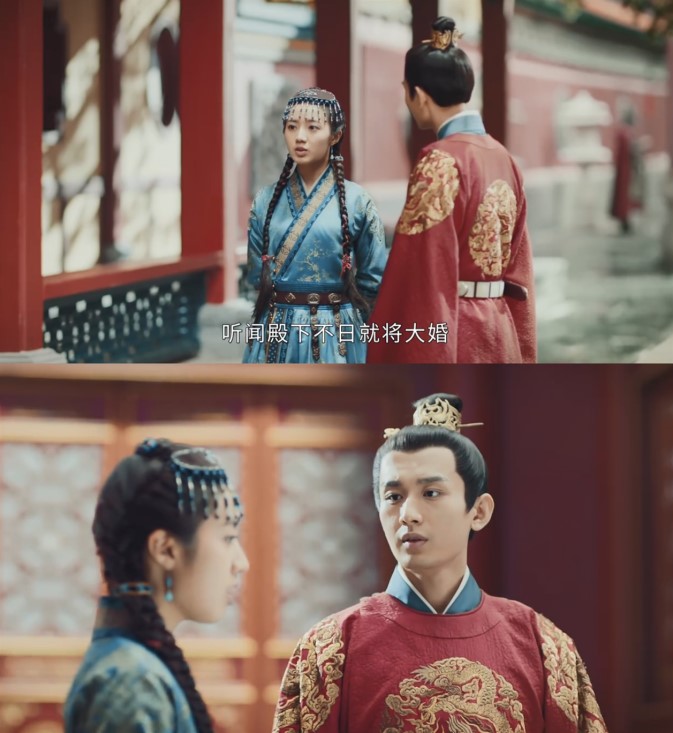
And when Zhu Di (played by Feng Shaofeng), Xu Miaoyun (played by Ying Er), and Bai Yalun Haibie (played by Zhang Zhixi) become adults, this triangular entanglement will continue for a period of time. As the Mongolian princess, there will even be a large number of Bai Yalun Haibie. The content of the palace fight (the episode has been greatly cut when it was broadcast).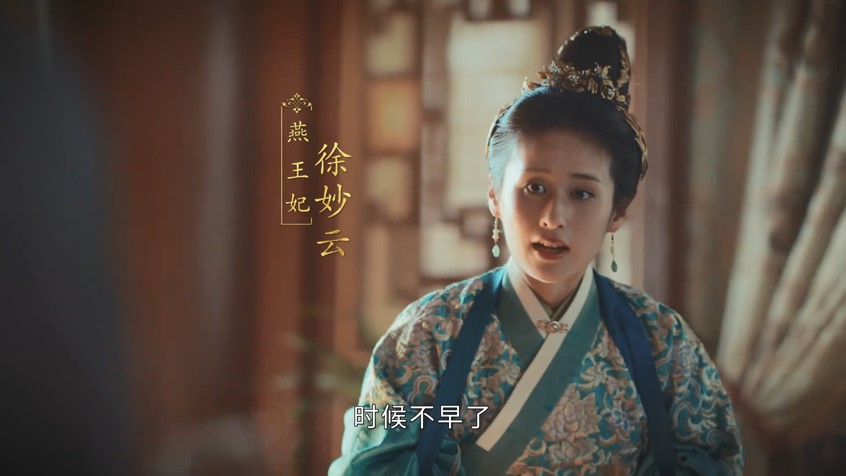
Another difficulty is the expression of the historical drama, that is, what kind of historical view it conveys. "Old Book of Tang Wei Zheng Biography" has a cloud: "Take history as a mirror, you can know the rise and fall; take history as a mirror, you can know the gains and losses; take history as a mirror, you can correct your clothes." The relationship between history and contemporary times that the concept of history refers to, how we look at history is also what we do How to face the microcosm of the present and the future. This is a somewhat sensitive issue. For example, the sharp and profound "Da Ming Dynasty 1566" was once banned from broadcasting, and it was not until 2017 that it was belatedly launched on Youku. We can't be harsh on creators, we can't ask them to take risks with a small investment of several hundred million yuan, and pour out the blocks in their hearts with the generosity of others.
But this does not mean that the historical drama has no room for expression. For example, it can prevent the historical drama from becoming a mere ode to a generation of feudal emperors, and it can also be used in a limited space with spring and autumn brushwork and side-by-side attacks.
"Mountains, Rivers and Moonlight" is still the idea of praise, but it is "softened". It portrays the royal family of Zhu Yuanzhang (played by Chen Baoguo) as a "Ming Dynasty family" full of daily fireworks, trying to restore the feudal emperor to a down-to-earth spirit An ordinary person, making Zhu Yuanzhang an ordinary husband and an ordinary old father.
Chen Baoguo plays Zhu Yuanzhang, and he plays Zhu Houxun in "Da Ming Dynasty 1566", which are completely two performance states. The latter is an emperor who is very scheming, trying to play everyone in the palm of his hand, with a dark and gloomy belly. Zhu Yuanzhang in "Mountains, Rivers, Moon and Brightness" has the majesty of an emperor, but after going down to court, he is a husband who talks about family affairs with his wife, and an old father who can't help his son and naughty children. An easy-going middle-aged man with no identity baggage in front of him...
Restoring feudal emperors to ordinary people and dispelling the authority of emperors aroused the recognition of Zhu Yuanzhang by ordinary audiences, who believed that he had warmth and emotion, and that it was not easy for the emperor to be in charge.
But in fact, the royal family cannot be an ordinary person, and the emperor has never been an ordinary person. This is the only decision of the despotism of the feudal imperial power. The emperor holds the power of life and death, which seems to be supreme, but the emperor is always in danger, because whoever fights the country and who sits in the country, there are many people who covet the throne, and the tragedy of "killing the son and killing the brother" occurs again and again.
Zhu Yuanzhang and Zhu Di are no exception - Zhu Yuanzhang himself came up from the peasants, and Zhu Di also succeeded in usurping the throne. They are all masters of power, and they are quite terrifying. As a result, "Mountains and Rivers and Moonlight" portrays them as lovely old fathers , The son of true temperament, let the audience empathize with them, the reflection and criticism of the feudal system and the feudal imperial power are completely lost, and even turn to identification and obedience.
Therefore, "Mountains, Rivers and Moonlight" is also a praise in essence. Although it is not as simple and rude as the praise of merits, its historical view is very backward; in terms of the dimension of historical drama, it is 30 years backward (not as good as "Nurhaci" in 1986) , lost the critical perspective of historical materialism.
In order to portray the emperor as an ordinary person, many scenes in the play are particularly outrageous. For example, Zhu Yuanzhang hoped that Xu Da (played by Zhang Fengyi) would marry his daughter Xu Miaoyun to Zhu Di, but Xu Da was not happy. He directly said in front of Zhu Yuanzhang that Zhu Di had a bad reputation and marrying his daughter to him was "a flower in..."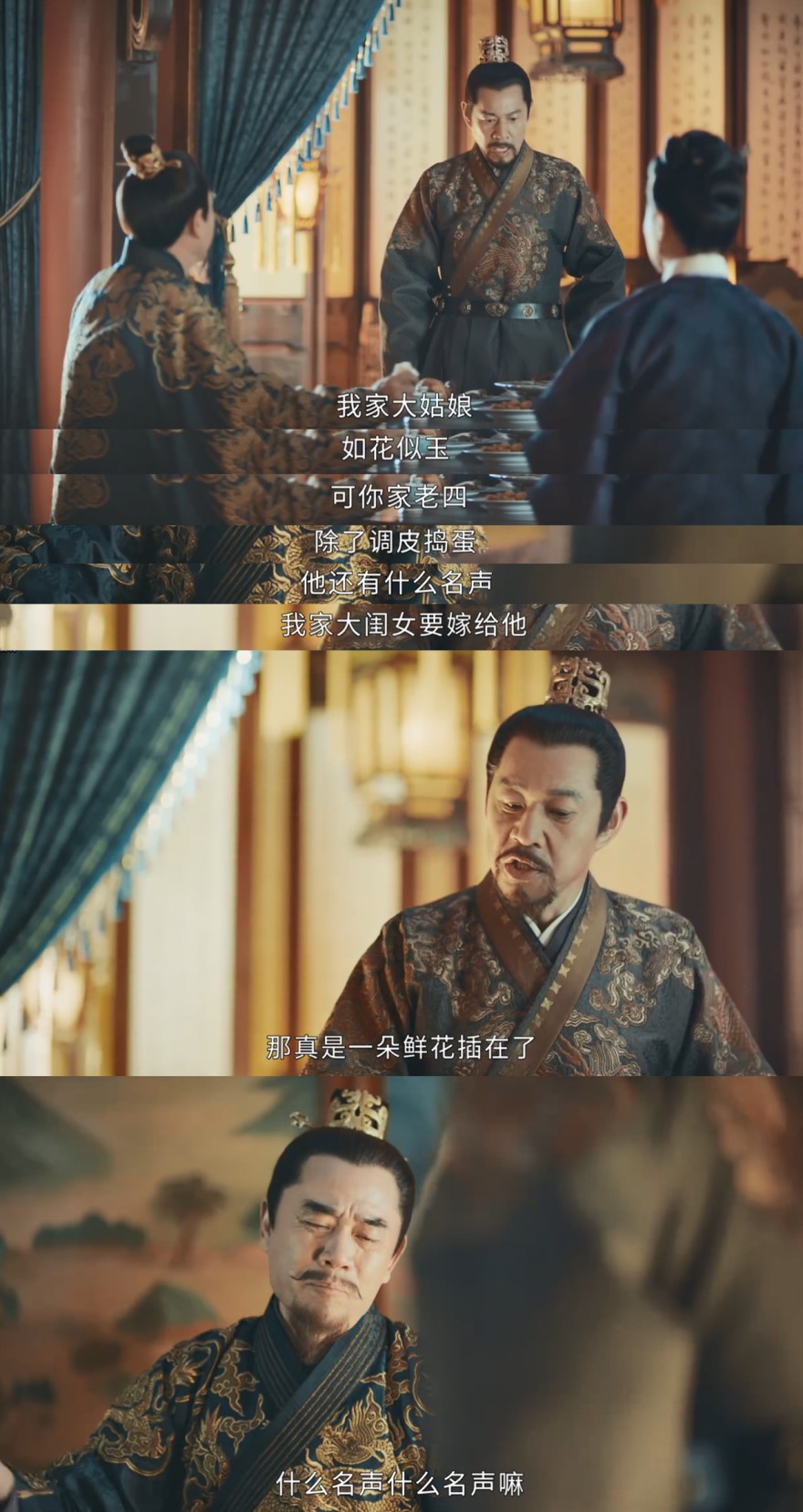
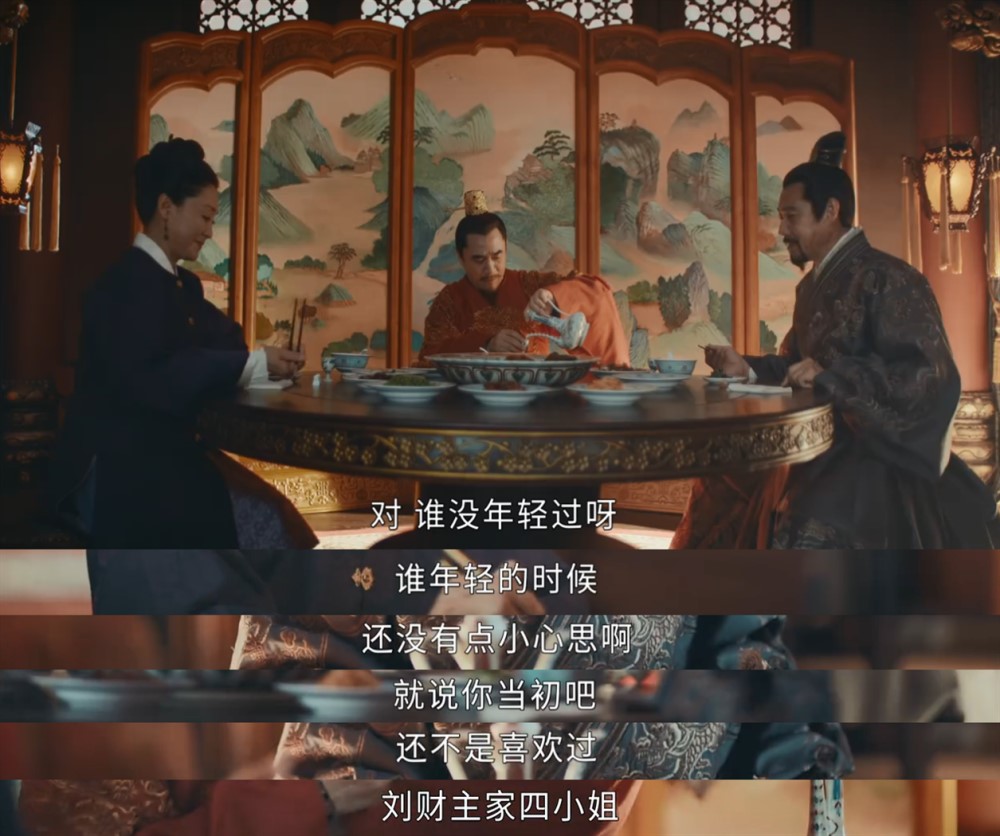
In the past, historical dramas, including "Prime Minister Liu Luoguo", "Iron Teeth Bronze Teeth Ji Xiaolan", and "Li Wei Becoming an Official", can all be criticized in a limited way from the rectification of officials in feudal society, revealing that in the feudal system. Under the "rule of man", some corruption will inevitably occur and some reforms will inevitably be hindered.
"Mountains, Rivers and Moonlight" doesn't even have this dimension. Zhu Yuanzhang rectified the administration of officials several times, and the power game between the emperor and his subjects was not depicted much, but more revealed: Zhu Yuanzhang was a good emperor, how sympathetic to the people, but some subjects were bad subjects, doing bad things behind Zhu Yuanzhang's back. So Zhu Yuanzhang wanted to recruit Jinyiwei to supervise those corrupt officials. "Mountains, Rivers and Moonlight" does not reveal the complete reason: Zhu Yuanzhang's main reason for engaging in Jinyiwei is that he is suspicious, and borrows the functions of Jinyiwei's military organs, secret agencies, judicial organs and other functions to eradicate dissidents and centralize power. In general, the expression of historical dramas is difficult, and "Mountains, Rivers and Moonlight" simply gave up any difficulty.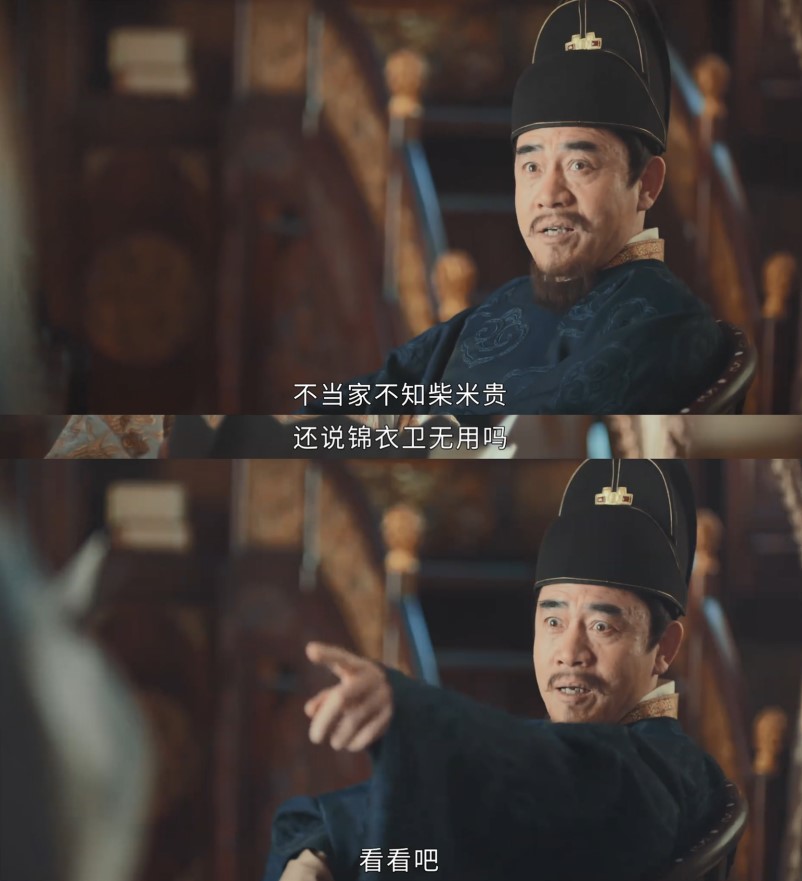
It first has the difficulty of expressing scale. Historical dramas have stricter broadcast requirements and high uncertainty, and may experience more twists and turns from completion to broadcast. For example, the new "Mountains, Rivers and Moonlight" was finally released this time. It was completed in 2018. It took 4 years to be broadcast, and the number of episodes was also greatly compressed, from the 72 episodes planned at the beginning to the present. 45 episodes.

"Mountains, Rivers and Moonlight" poster
Another "difficulty" is the difficulty in the market. Although there are historical dramas such as "Yongzheng Dynasty", "Kangxi Dynasty", "Qianlong Dynasty" and "Secret History of Xiaozhuang" before and after the new century. Expect. Although "Da Ming Dynasty 1566" has a good reputation, its ratings were dismal when it was broadcast on Hunan Satellite TV's prime time, only one-fifth of the usual ratings.Why is the historical drama so popular? On the one hand, serious and solemn historical dramas often have many characters and complex stories, and have a high threshold for acceptance. On the other hand, other types of costume dramas continue to erode the share of historical dramas, such as the wave of palace fights started by "The Legend of Zhen Huan" in 2011, the wave of time-travel started by "Gong Suo Xin Yu" and "Journey to the Heart", costume dramas The general direction of creation shows the characteristics of entertainment.
In the context of "difficulties at both ends", historical dramas are "thankful", but this type of drama has irreplaceable significance and value. Therefore, there are still production companies willing to produce historical dramas, which are worthy of recognition. Broadcasting means victory in the first place.
Gao Xixi is the chief director, and Feng Shaofeng, Chen Baoguo, Zhang Fengyi and others starred in "Mountains, Rivers and Moonlight", focusing on how Zhu Di grew into a generation of emperors. Like "Yongzheng Dynasty", although it is about Yongzheng, it first spends a lot of space on Kangxi. "Mountains, Rivers and Moonlight" starts from the early years of Hongwu, and also spends a lot of space on Zhu Yuanzhang.

Zhu Yuanzhang (played by Chen Baoguo)

Adult Zhu Di (played by Feng Shaofeng)
So, how does "Mountains, Rivers and Moonlight" deal with the "difficulties" of historical dramas? Let’s look at the market-oriented part first. How to make historical dramas more popular and beautiful?The strategy adopted in "Mountains, Rivers and Moonlight" is rather tacky. It is mixed with a large number of ancient puppets in the historical drama, adding a Mongolian "white moonlight" to the young Zhu Di (played by Cheng Yi) - King Kuokuo of Qi of Dayuan The eldest daughter, Bo Yalun Haibie (played by Huang Yi), is entirely an artistic fiction. The emotional line between the two is an ancient puppet routine: the enemy's road is narrow - no fight, no acquaintance - a long time to see people's hearts - secret feelings.

Young Zhu Di and Mongolian "White Moonlight" Bai Yalun Haibie
When Zhu Di's favorite was Mongolian "White Moonlight", he and Xu Miaoyun (played by Yu Ting'er), who was a teenager, took the route of "marriage first and love later". Zhu Di objected to the arranged marriage that Zhu Yuanzhang arranged for him. He was playing disappearance, and he went to the door and told Xu Miaoyun directly: He did not plan to marry her. Xu Miaoyun knew righteousness and was willing to marry Zhu Di, because she believed that Zhu Di was not an extraordinary person, and she also had the confidence to "subdue" Zhu Di.And when Zhu Di (played by Feng Shaofeng), Xu Miaoyun (played by Ying Er), and Bai Yalun Haibie (played by Zhang Zhixi) become adults, this triangular entanglement will continue for a period of time. As the Mongolian princess, there will even be a large number of Bai Yalun Haibie. The content of the palace fight (the episode has been greatly cut when it was broadcast).

Adult Xu Miaoyun (played by Ying Er)
Historically, Zhu Di and Xu Da's eldest daughter, Xu Miaoyun, were childhood sweethearts and had a deep relationship. There was no Mongolian "white moonlight". The screenwriter's handling of this was opposed by a lot of fans. The addition of ancient puppets to historical dramas also caused the style of the plot to be very divided. As a result, the efforts of "Mountains, Rivers and Moonlight" to broaden the audience of historical dramas through ancient puppet routines have completely failed.Another difficulty is the expression of the historical drama, that is, what kind of historical view it conveys. "Old Book of Tang Wei Zheng Biography" has a cloud: "Take history as a mirror, you can know the rise and fall; take history as a mirror, you can know the gains and losses; take history as a mirror, you can correct your clothes." The relationship between history and contemporary times that the concept of history refers to, how we look at history is also what we do How to face the microcosm of the present and the future. This is a somewhat sensitive issue. For example, the sharp and profound "Da Ming Dynasty 1566" was once banned from broadcasting, and it was not until 2017 that it was belatedly launched on Youku. We can't be harsh on creators, we can't ask them to take risks with a small investment of several hundred million yuan, and pour out the blocks in their hearts with the generosity of others.
But this does not mean that the historical drama has no room for expression. For example, it can prevent the historical drama from becoming a mere ode to a generation of feudal emperors, and it can also be used in a limited space with spring and autumn brushwork and side-by-side attacks.
"Mountains, Rivers and Moonlight" is still the idea of praise, but it is "softened". It portrays the royal family of Zhu Yuanzhang (played by Chen Baoguo) as a "Ming Dynasty family" full of daily fireworks, trying to restore the feudal emperor to a down-to-earth spirit An ordinary person, making Zhu Yuanzhang an ordinary husband and an ordinary old father.
Chen Baoguo plays Zhu Yuanzhang, and he plays Zhu Houxun in "Da Ming Dynasty 1566", which are completely two performance states. The latter is an emperor who is very scheming, trying to play everyone in the palm of his hand, with a dark and gloomy belly. Zhu Yuanzhang in "Mountains, Rivers, Moon and Brightness" has the majesty of an emperor, but after going down to court, he is a husband who talks about family affairs with his wife, and an old father who can't help his son and naughty children. An easy-going middle-aged man with no identity baggage in front of him...
Restoring feudal emperors to ordinary people and dispelling the authority of emperors aroused the recognition of Zhu Yuanzhang by ordinary audiences, who believed that he had warmth and emotion, and that it was not easy for the emperor to be in charge.
But in fact, the royal family cannot be an ordinary person, and the emperor has never been an ordinary person. This is the only decision of the despotism of the feudal imperial power. The emperor holds the power of life and death, which seems to be supreme, but the emperor is always in danger, because whoever fights the country and who sits in the country, there are many people who covet the throne, and the tragedy of "killing the son and killing the brother" occurs again and again.
Zhu Yuanzhang and Zhu Di are no exception - Zhu Yuanzhang himself came up from the peasants, and Zhu Di also succeeded in usurping the throne. They are all masters of power, and they are quite terrifying. As a result, "Mountains and Rivers and Moonlight" portrays them as lovely old fathers , The son of true temperament, let the audience empathize with them, the reflection and criticism of the feudal system and the feudal imperial power are completely lost, and even turn to identification and obedience.
Therefore, "Mountains, Rivers and Moonlight" is also a praise in essence. Although it is not as simple and rude as the praise of merits, its historical view is very backward; in terms of the dimension of historical drama, it is 30 years backward (not as good as "Nurhaci" in 1986) , lost the critical perspective of historical materialism.
In order to portray the emperor as an ordinary person, many scenes in the play are particularly outrageous. For example, Zhu Yuanzhang hoped that Xu Da (played by Zhang Fengyi) would marry his daughter Xu Miaoyun to Zhu Di, but Xu Da was not happy. He directly said in front of Zhu Yuanzhang that Zhu Di had a bad reputation and marrying his daughter to him was "a flower in..."

Xu Da refuted the emperor's marriage
Even in front of Queen Ma, he repeatedly exposed Zhu Yuanzhang's previous shortcomings. For example, Zhu Yuanzhang had a bad reputation in his youth, and even broke the news that Zhu Yuanzhang used to like the daughter of the landlord's family. In these two scenes, Zhu Yuanzhang was amiable and rounded up in a haha-like manner.
Xu Da exposes Zhu Yuanzhang's shortcomings in front of Queen Ma
Such a bridge is completely "beautiful and romantic" of the feudal imperial power. Historically, after Zhu Yuanzhang became emperor, he was known for being suspicious and cruel. After all, his background was not good, so he was particularly inferior and was very afraid of others mentioning his past. Most of the heroes who fought with Zhu Yuanzhang in the country were killed by Zhu Yuanzhang. The history books say, "Only to the Mingzu, borrowing various heroes to take the world, and the world is established, that is, all people who take the world will be killed. Its cruelty is unprecedented." Xu Da was one of the few who survived, and he was known for his prudence and prudence. But in "Mountains, Rivers and Moonlight", Xu Da's mouth is open, and Zhu Yuanzhang has become more broad-minded.In the past, historical dramas, including "Prime Minister Liu Luoguo", "Iron Teeth Bronze Teeth Ji Xiaolan", and "Li Wei Becoming an Official", can all be criticized in a limited way from the rectification of officials in feudal society, revealing that in the feudal system. Under the "rule of man", some corruption will inevitably occur and some reforms will inevitably be hindered.
"Mountains, Rivers and Moonlight" doesn't even have this dimension. Zhu Yuanzhang rectified the administration of officials several times, and the power game between the emperor and his subjects was not depicted much, but more revealed: Zhu Yuanzhang was a good emperor, how sympathetic to the people, but some subjects were bad subjects, doing bad things behind Zhu Yuanzhang's back. So Zhu Yuanzhang wanted to recruit Jinyiwei to supervise those corrupt officials. "Mountains, Rivers and Moonlight" does not reveal the complete reason: Zhu Yuanzhang's main reason for engaging in Jinyiwei is that he is suspicious, and borrows the functions of Jinyiwei's military organs, secret agencies, judicial organs and other functions to eradicate dissidents and centralize power. In general, the expression of historical dramas is difficult, and "Mountains, Rivers and Moonlight" simply gave up any difficulty.

Rationalizing Jinyiwei and highlighting the emperor's "difficulty in being in charge"
"Mountains, Rivers and Moonlight" has an investment of 320 million yuan, and the service is very attentive. A group of old actors also contributed very good performances, which are much higher in texture than the overhead costume dramas. However, from the perspective of the historical drama, it failed to achieve the breakthrough of "two difficulties". Especially in the expression of the historical view, it is regrettable.









Comments